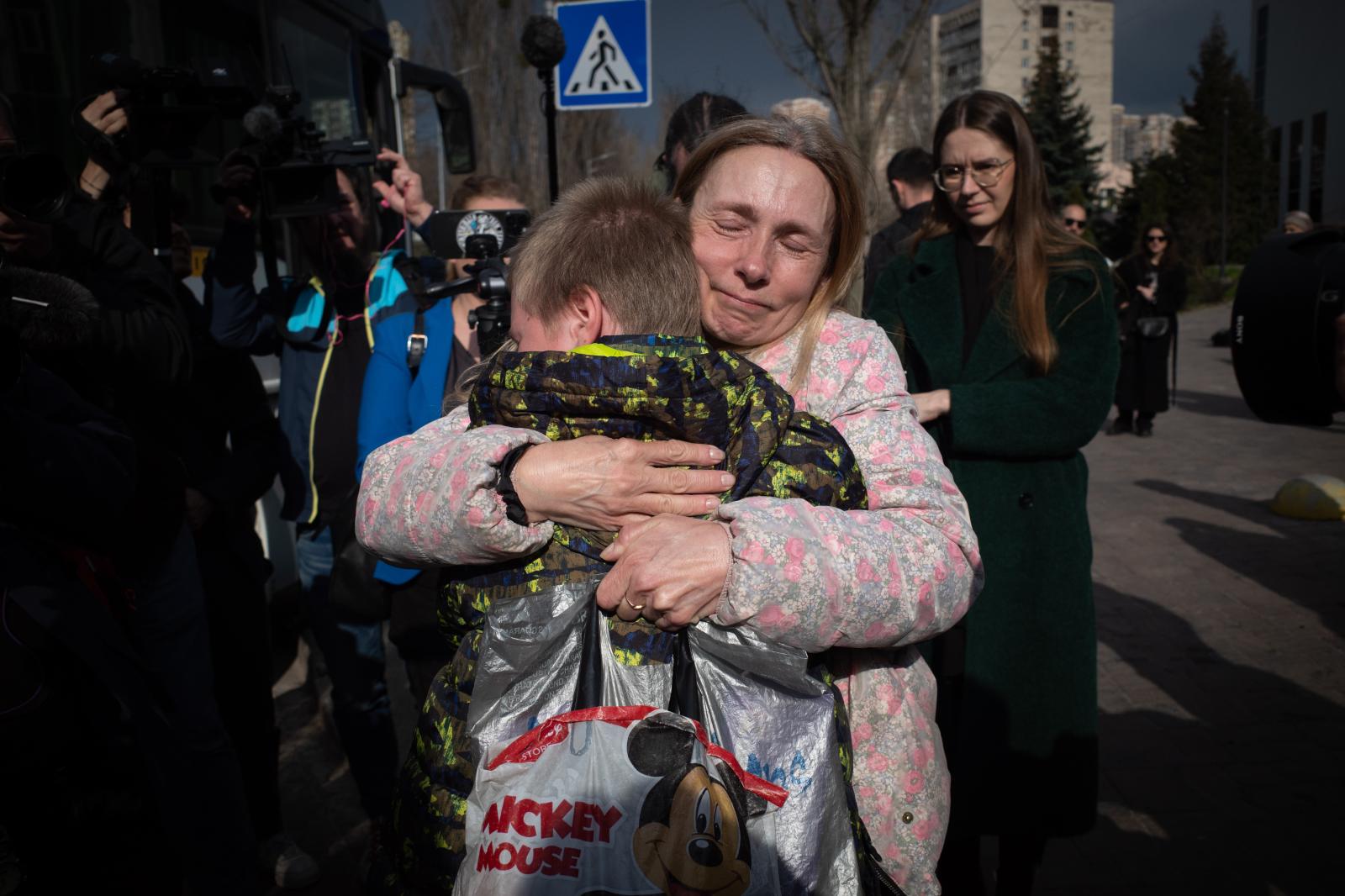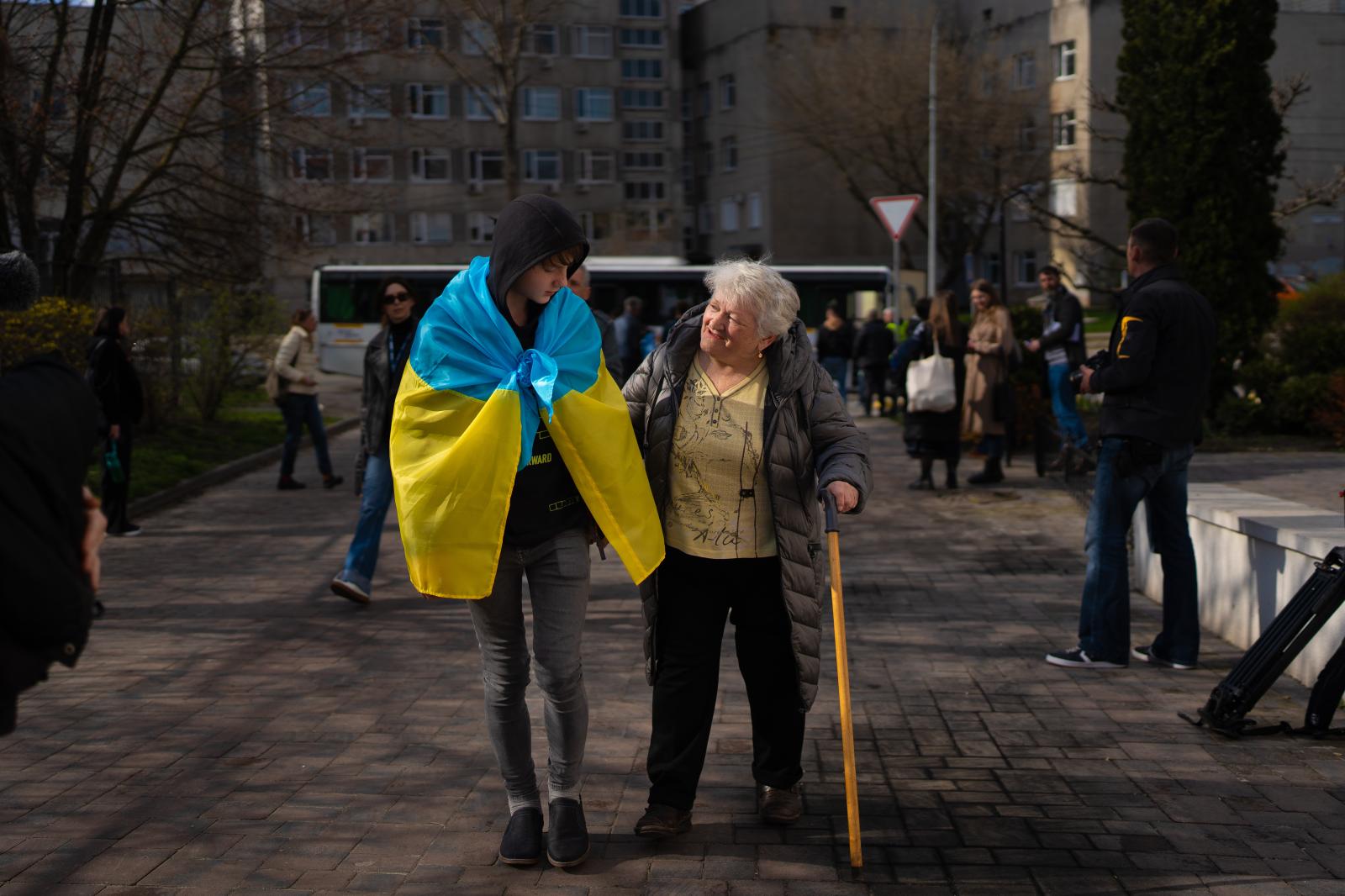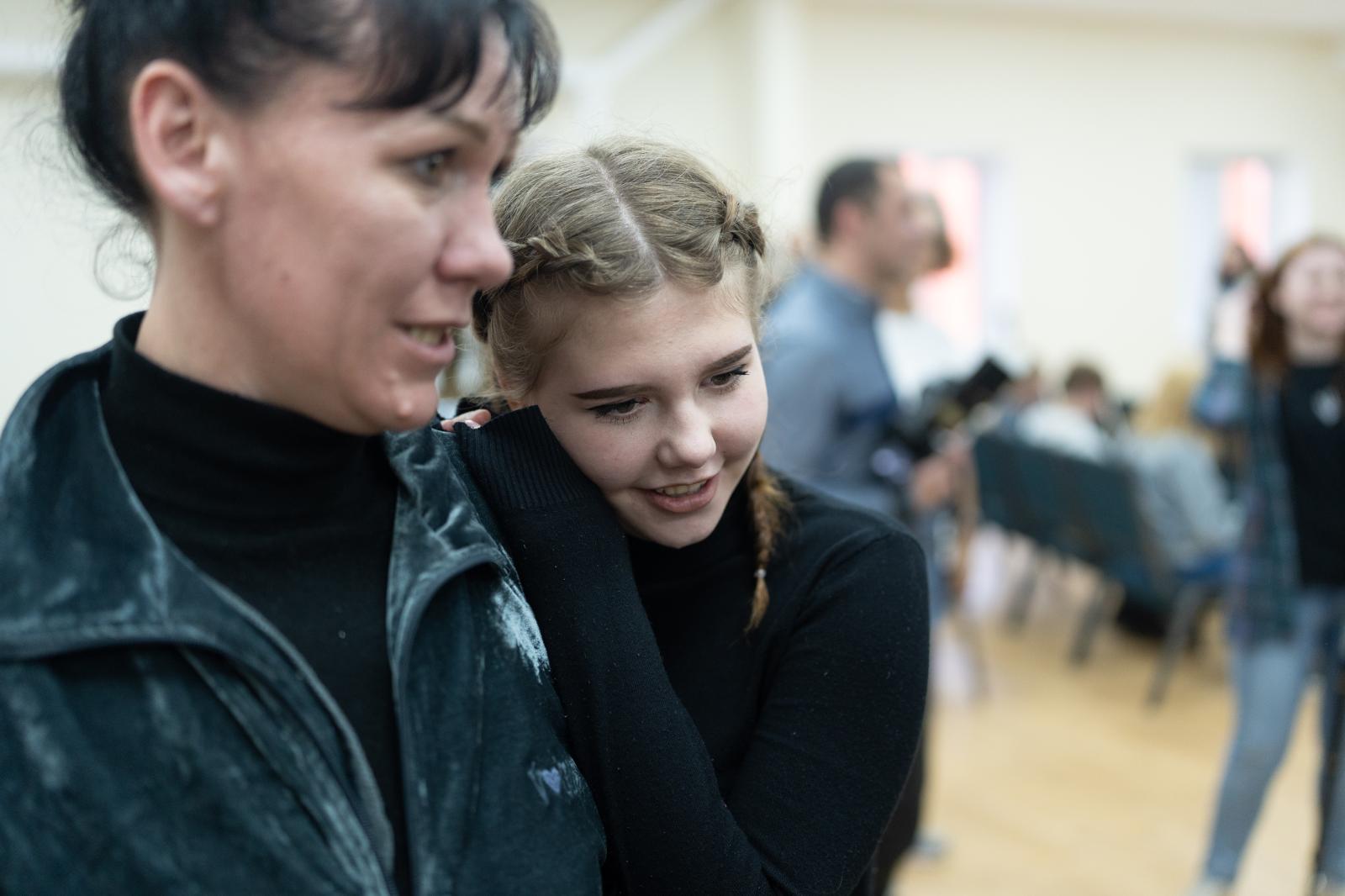When Svitlana Markina’s daughters asked to go to a holiday camp in Russian-occupied Crimea in October last year, she thought it might be their only chance to take a break from Ukraine’s brutal and exhausting war.
School teachers said it was an opportunity for the girls, Yana, 15, Yeva, 12, to rest and recuperate away from Kherson, which was being hit by shelling as Ukraine’s southern counter offensive drew near – the city had been under occupation since just after the full-scale invasion. “Why do you want to keep your children here? Why do you want to keep them from the sea and fresh air?” members of the Russian administration insisted.
“I’m a single mother, I work full time in a factory and things were really hard for us even before the war,” said Markina, 36, who is originally from Crimea but has not been able to visit since it was annexed in 2014. “The girls had never even left Kherson before.”
On October 7, Yana and Yeva were loaded onto buses alongside dozens of other children, clutching their original birth certificates as instructed. Yura Verbovytskyi, 15, who was also on the buses that day, said the mood was excitement not fear. However, as they set off, the Russian soldiers overseeing the trip made the sign of the cross. “That’s when we first thought ‘what the hell is going on?’” Yura said.
The children didn’t return two weeks later, as the Russian administration had promised. “I realised the girls were not coming back and I tried to reach the school, but no one was there,” said Markina. Another two weeks passed and Ukrainian forces arrived in Kherson, liberating it from Russian occupation – Markina’s daughters were now trapped on the opposite side of an all-out war, with no border crossings open to Crimea.
For months, families in Kherson could only reach their absent children through messaging apps, occasionally a call, sometimes going a week without speaking when heavy shelling took out the phone connection. They hoped for a solution, struggling to get through birthdays, Christmas and New Year apart. Yura’s mother, Toma Verbovytskyi, 45, said she would wear his clothes around the house “just to feel close to him”.
Through a local Telegram group, Markina, Verbovytskyi and others heard about a charity,Save Ukraine, that was working to bring Ukrainian children home. After two months of nervous planning, assisted by Save Ukraine, a group of 13 women set out in early April on an arduous journey through Poland, Belarus and deep into enemy territory to rescue 31 children. “My legs are like jelly. They’re numb, my hands are tingling and my ankles are swollen. It was a really tough, long journey, but I have my girls,” Markina told Foreign Policy with tears in her eyes as they arrived back in Kyiv a week later.
“I am incredibly happy – I brought my son back and I feel like I’m complete again. Before it was as though I was without air,” said Verbovytskyi, stepping off the bus still wearing Yura’s sweatpants.
According to Ukraine’s National Information Bureau, more than 16,000 children have been taken to Russia or Russian-controlled territory since the invasion in February last year, while other estimates place the figure as high as 200,000. Moscow claims any children now under its watch were either orphans or had requested evacuation, but Kyiv warns of a far more sinister plot – genocide. An attempt to erase the Ukrainian identity.
Some children were taken from occupied areas such as Kherson and the Kharkiv region, their parents asked to sign a release form without telling them the children would not be coming back. Others were taken from conflict hotspots like Mariupol or from filtration camps. Many remain in camps or foster homes, but an unknown number of children, including a few whose parents were killed by Russian forces, have been forcibly adopted in Russia.
Russian law prohibited the adoption of foreign children without consent from their home country until May, when President Vladamir Putin signed a decree to loosen regulations. Money is offered to families willing to adopt, and research by Yale University’s Humanitarian Research Lab released earlier this year identified 32 “integration” camps, where children are subjected to indoctrination in Russian history, propaganda, language and culture.
The deportations have been condemned as a war crime by the international community, with the International Criminal Court issuing an arrest warrant for President Putin and his children’s rights commissioner, Maria Lvova-Belova, in March. Lvova-Belova has herself adopted a 15-year-old, Filip, from Mariupol.
Save Ukraine, which is working to locate and return as many children from Russia as possible, assisted with the ICC investigation. Head Mykola Kuleba told Foreign Policy that mothers first started reporting that their children were being taken to “summer” camps in August last year, with their first rescue mission taking place in September.
“If a child will stay for one year in the Russian Federation it would be hard to return them,” said Kuleba. “The propaganda and brainwashing will convince them they are Russian, that Ukraine is not a country, so the key time to recover these children is now.”
So far they have recovered 95 children, with a further 100 being processed. Some return with stories of harsh punishments and strict regimes. At least one returned child is now in a psychiatric ward.
Markina and Verbovytskyi’s children did not report any ill treatment, although representatives of Save Ukraine said that sometimes it can take time for them to absorb what happened. According to one child from the group, speaking at a press conference organised by Save Ukraine, there had been cockroaches in the dining facilities, the pillows had been mouldy and that some of the children were beaten. They are offered three months rehabilitation with mental health teams.
The location of a child can be reported via Save Ukraine’s hotline, by police or NGOs, and by the mothers or children themselves. It’s too dangerous for charity workers to attempt to cross the border, and men between 18 and 60 cannot leave Ukraine due to mobilisation rules.Save Ukraine organises a route, pays for the expenses through private donations, and assists mothers or close female family members to access Russia or the territory it controls. They advise the women what to say at the border, what to delete from their phones and how to cope if questioned.
Markina’s hands were shaking with nerves as the women set out from Kyiv. “I’m just so scared something will go wrong and I won’t be able to reach my girls,” she said at the time. From Belarus, they caught a flight to Moscow before driving 1,000 miles to Crimea. Along the way, they navigated hostile police checks and hours of airport questioning – a trip so physically draining that one member of the group, Olga, 65, succumbed to a heart attack in Russia’s Krasnodar.
At Camp Druzhba – Russian for friendship – in Yevpatoria, where the children had been staying, there was an emotional reunion. “There was so much noise as all the children screamed ‘Mama, Mama!’. We all hugged and cried for 15 minutes nonstop and couldn’t let go of each other,” said Markina. Mothers said the children had grown taller while they were away, they were more mature.
After just an hour, the women were back on the road to do the same in reverse with Yana, Yeva, Yura and the others. It was difficult to leave around 14 Ukrainian Children behind – they can only be released to a close family member. Olga’s two grandchildren were among them.SaveUkraineis working on another mission to retrieve them.
Now the returning families face a fresh challenge – going back to Kherson, a city still in recovery from eight months of occupation. There is little work, few shops are open and it is regularly pounded by shelling. “One positive of the camp was that we were far away from the front line and there were no explosions,” said Yana.
On Saturday alone, the Kherson region was hit 96 times, killing a mother and daughter. Local residents were warned not to gather to mark Orthodox Easter, and Ukraine has signalled plans to launch a new offensive this spring to retake more territory held by Russia, which could lead to retaliatory strikes.
“I’m scared to go back to Kherson now, there's so much shelling there,” said Yura. “It could be scary, but it’s home. I’m going to get used to it.”
Liz Cookman














